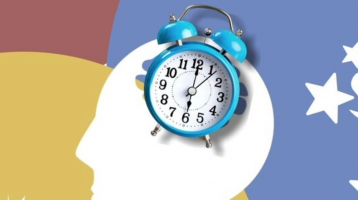Do you ever feel sleepy after lunch? Do you think wistfully of the good old days when afternoons involved a blanket and some shut-eye? If so, you are not alone. One out of three American adults admits to taking naps on a regular basis, and there are probably even more of us who would do so if we could. Unfortunately, napping is a task most people must give up early in childhood. Could this be a bad decision for our memory and cognition? A new study weighs in on the subject with surprising results.
Sleep, Memory, and Learning
What exactly do you get out of sleep? If you ask most people, they will tell you that sleep makes them stop feeling tired. Indeed, the average person falls asleep at night at night because they are weary. However, sleep plays an important role not just in helping us to feel rested, but in helping us to think, remember, and learn.
When we sleep, the nerve endings in our brains form new synapses, or connections. These synapses help us to learn and to remember, consolidating information and filing away new memories until they are needed. In addition, sleep is the time when our brains flush out the toxins of the day, allowing our brain to clean house so it can run more efficiently the next day.
Sleep in general is essential for thinking and remembering in addition to physically feeling our best. However, the findings have been more mixed when it comes to daytime naps.
Mixed Reviews on Daytime Naps
At first glance, it would be easy to assume that napping is bad for your health. Several studies have associated napping with poor outcomes such as lower cardiovascular health and higher rates of diabetes. Another study found that naps are associated with a higher risk of death. Could that few moments on the sofa really do so much damage?
Experts have been critical of the studies associating napping with poor outcomes. Sick and elderly people are the most likely adults to take naps during the day and also are more likely to suffer from chronic disease. Thus, while there may be a statistical connection between naps and illness, it is not a causative one.
However, this is not to say naps are a good choice. Researchers generally see them as a sign that you are not getting enough sleep at night, which is when we need to sleep in order to maintain a healthy circadian rhythm. In addition, sleeping too long during the day can set you up for a night of insomnia, which has a variety of unpleasant health effects. Although napping is not good for the health in excess, however, it may have some potent health and cognitive benefits in moderation.
Could Napping Help You Make Better Decisions?
What kind of benefits could you get from that five minutes on the couch? A new study suggests that a very specific type of intelligence may be positively impacted by even short naps.
Researchers decided to look at how napping affects our unconscious decision-making. Volunteers were shown information for a very short time on a screen, so they did not have time to consciously remember it but instead had it stored in their unconscious memory. They then were either treated to a 90 minute nap or kept awake. The two groups were then quizzed on the information. People who had been given a nap were able to more accurately recall the information and also had a faster reaction time.
Better Sleep, Better Mental Health

So how can you ensure that you get the sleep you need to be your best self? Whether you choose to nap or choose to brave the afternoon, you still need to get enough sleep. Researchers suggest the following easy lifestyle changes:
- Play with light. Make sure you get exposure to bright light when you want to be alert while limiting your light exposure when you plan on resting.
- Avoid exercising, eating or otherwise engaging in stimulating activities in the hour or so before bed.
- Practice good sleep hygiene, using your bedroom only for sleep and sex. This means no laptop or television in the bedroom!
- Try to keep the same schedule every day, as this will allow your body to maintain a healthy circadian rhythm.








